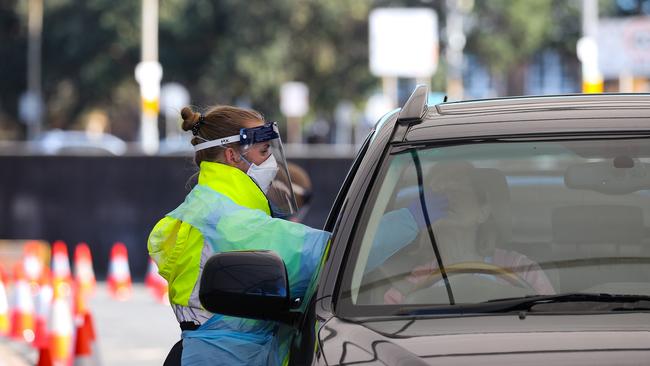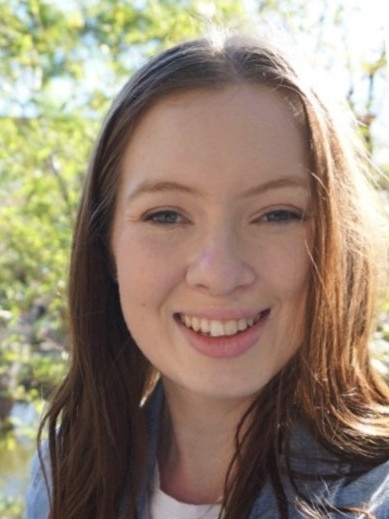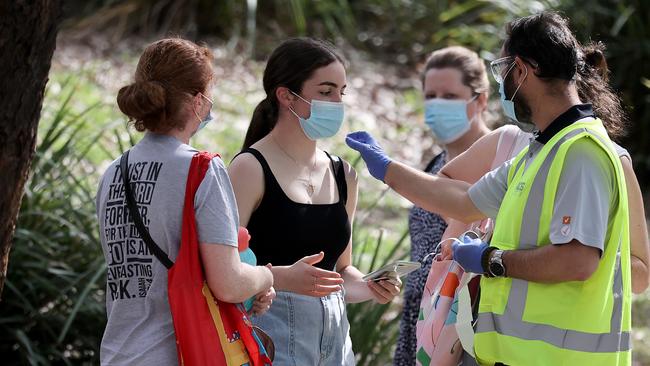Covid Sydney: Workers can’t get disaster payments over reduced contact tracing
Casual workers who have to take time off work after being exposed to Covid can’t qualify for disaster pay as Sydney’s contact tracers are being redirected.
St George Shire Standard
Don't miss out on the headlines from St George Shire Standard. Followed categories will be added to My News.
Essential workers in greater Sydney who are potentially exposed to Covid are no longer eligible for disaster relief payments while they are unable to work because NSW Health is no longer contact tracing exposures deemed “low risk”.
As NSW Health turns its attention to major outbreaks in regional and rural parts of the state, some venues and exposures considered low risk are no longer being contact traced.
Therefore essential workers exposed to Covid at deemed low risk venues who are required by their employers to isolate for two weeks are no longer eligible for $1500 Commonwealth disaster payments because NSW Health is not tracing their workplaces.
Instead, casual employees who cannot work due to their employers deeming them close contacts are only eligible for a one-off $320 test and isolate payment – irrespective of whether they are unable to work for two weeks at their employers’ discretion.
“NSW Health follows up with confirmed cases as soon as possible to conduct an in-depth interview and to identify any additional close contacts,” a NSW Health spokeswoman said.
“Where a high-risk exposure venue is identified from the case interview, QR code information may be used to identify and inform people who may have been exposed at that venue.”
At the NSW Health press conference on September 13, Dr Jeremy McAnulty confirmed the new risk assessment strategy was a deliberate decision to allocate resources to deemed high risk exposures.
“With experience we had over the last 18 months, we have been able to identify those places that are higher risk for Covid transmission and those that are less risk of Covid transmission,” Dr McAnulty said.
“We have taken the deliberate decision to prioritise locations such as workplaces, high-risk settings such as prisons, aged care facilities, hospitals, where we know that there is an increased risk of transmission or places where we have identified transmission.”
However, Dr McAnulty confirmed contact tracing for low risk venues outside of greater Sydney is continuing.

The one-off test and isolate payment comes as cold comfort for casual workers whose employers stop them from working for two weeks after they were exposed to Covid as a matter of discretion.
Sydney supermarket worker Drew Meehan was not contacted by NSW Health despite working for four days alongside a colleague who then tested positive for Covid.
Given the time she and a number of co-workers had spent with the affected person, her employer said she needed to isolate and would not be able to work for two weeks.
As casual workers with no sick pay or annual leave who are not deemed close contacts by NSW Health despite working alongside a confirmed case for several days, Ms Meehan and her colleagues can only access a one-off $320 payment despite losing two weeks’ work.

“We’re all minimum wage workers, myself and others have to pay rent and we’re not getting paid because we don’t have annual leave,” Ms Meehan said.
“Now I also can’t get the $1500 – which is less than I would have earned anyway but it’s something to cover the rent while I can’t go to work.”
Ms Meehan said the anxiety after learning she and her co-workers had been exposed to Covid had been debilitating.
“It’s the uncertainty, there’s 14 or 15 of us up in the air because we need payment,” Ms Meehan said.
“I’m quite lucky, I live with my partner and I have some savings, but for my colleagues who have to pay rent on their own it’s their full responsibility to pay the bills but they can’t work.”

It is understood contact tracers – who number more than 1000 – no longer have the capacity to trace every exposed venue in Sydney and instead are focusing on what they deem high risk venues and venues in regional and rural NSW.
Ms Meehan – who has a Masters in Public Health and a Bachelor of Science majoring in Biomedical Science – has been knocked back for a contact tracing job both times she has applied to advertised roles.





